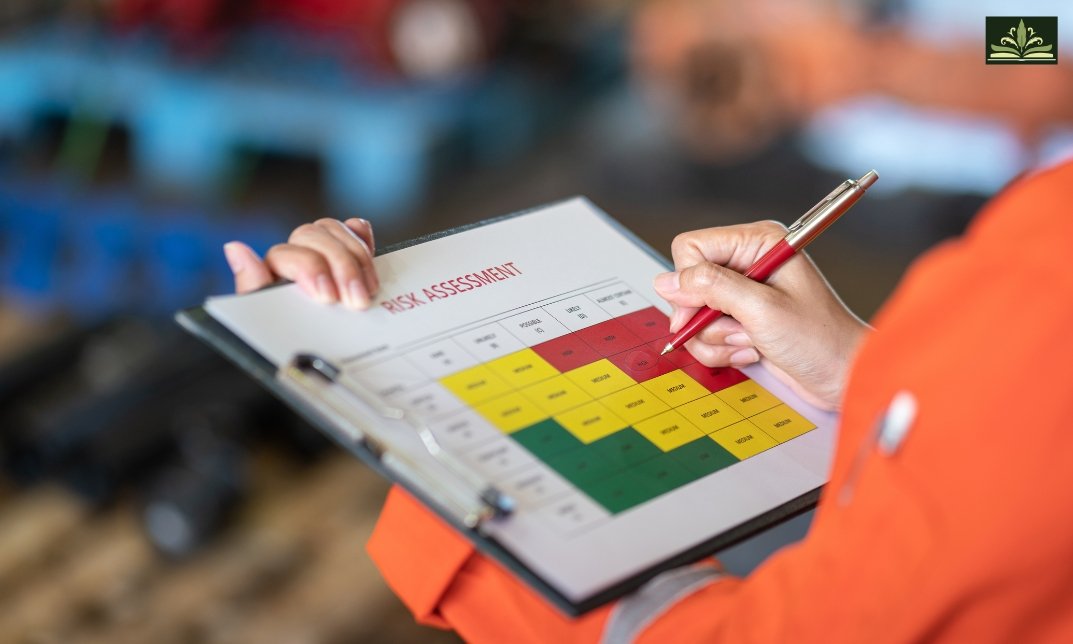No products in the cart.
Did you know that the restaurant industry employs over 1 million managers worldwide? But many people still aren’t quite sure what a restaurant manager’s role involves. Therefore, in this blog, we will closely review what a restaurant manager does to keep everything running smoothly.
The Role of a Restaurant Manager
A restaurant manager does various important managerial work in the restaurant. They are in charge of everything that happens in the restaurant, from the front of the house to the kitchen. As a result, they must ensure that the staff is performing well, the customers are satisfied, and the restaurant is making a profit. Moreover, they are often the face of the restaurant, interacting with guests, solving problems, and ensuring that the business runs smoothly.

The Key Responsibilities of a Restaurant Manager
A restaurant manager’s job is multifaceted, and it involves several key areas of responsibility. From managing staff to ensuring the satisfaction of customers, every task contributes to the smooth running of the restaurant. So let’s look at some of the main responsibilities a restaurant manager:
Staff Management
Restaurant managers are in charge of managing staff, which is a crucial part of the job. This includes hiring, training, and scheduling employees to make sure the restaurant has the right team to operate efficiently. Moreover, they must handle any staff issues, such as conflicts or performance concerns. Therefore, it is their job to ensure that the staff is motivated, well-trained, and ready to provide great service.
Customer Service
What a restaurant manager does in terms of customer service is vital to the restaurant’s success. They ensure that customers have a positive experience from the moment they enter the restaurant until they leave. On the other hand, if something goes wrong, such as an incorrect order or a long wait time, the manager steps in to resolve the issue. In this way, they help maintain the restaurant’s reputation and ensure repeat business.
Overseeing Daily Operations
One of the most important aspects of a restaurant manager’s role is overseeing daily operations. This includes ensuring everything from the kitchen to the dining area runs smoothly. As a result, they must ensure that food is prepared and delivered on time, Moreover, the restaurant stays clean, and any potential issues are addressed before they become major problems.
Financial Management
Managing the financial side of the restaurant is another big responsibility. What a restaurant manager does with regard to finances can greatly affect the profitability of the establishment. They are responsible for budgeting, managing costs, and tracking sales. Therefore, they often have to make decisions on purchasing supplies and managing stock levels. By keeping a close eye on the budget, managers help ensure that the business remains profitable.
Health and Safety Compliance
Ensuring the restaurant meets health and safety regulations is critical. Restaurant managers must be familiar with local laws and guidelines and ensure that the restaurant adheres to them. Thus, they conduct regular inspections, train staff on safety protocols, and handle any health and safety issues that arise. Thus, this responsibility not only protects customers and staff but also prevents potential fines or legal issues.
Skills Needed for the Job

Given the broad range of responsibilities, it’s clear that a restaurant manager needs to have a diverse skill set. Here are some essential skills for the role:
- Leadership Skills: A restaurant manager needs strong leadership skills as the person in charge of staff. They must be able to motivate and guide their team, often in high-pressure situations. This means being decisive and knowing how to handle difficult situations effectively.
- Communication Skills: Good communication is essential when managing a restaurant. A manager must communicate with staff, customers, and suppliers. Moreover, clear communication helps avoid misunderstandings and ensures that everyone is on the same page.
- Problem-Solving Abilities: In a restaurant, things can go wrong quickly, from customer complaints to equipment breakdowns. Restaurant managers must be quick thinkers who can solve problems on the spot. Moreover, they need to be resourceful and able to find practical solutions under pressure.
- Organisation and Time Management: With so many different tasks to manage, managers need excellent organisational skills. They must manage their time effectively and ensure that all aspects of the restaurant are running efficiently. Therefore, keeping track of schedules, stock levels, and finances requires a high level of organisation.
- Financial Literacy: A manager also needs to understand the financial side of the business. Being able to manage a budget, track sales, and keep costs under control is vital to keeping the restaurant profitable. Therefore, some financial knowledge is necessary to ensure the business stays in the black.
How Does a Manager Keep Everything Running Smoothly?
You might now wonder how one person can manage so many responsibilities and ensure everything runs smoothly. The answer lies in careful planning, delegation, and maintaining a positive work environment.
Delegating Tasks
They cannot handle everything by themselves, so they delegate tasks to their staff. This includes assigning roles in the kitchen, scheduling servers, and making sure there is enough coverage during busy periods. By delegating effectively, they can focus on higher-level tasks that require their attention.
Creating a Positive Work Environment
What a restaurant manager does to maintain a positive atmosphere for staff directly impacts the restaurant’s success. When staff feel supported and motivated, they are more likely to provide excellent service. Therefore, managers often focus on team-building and encouraging a positive attitude within the workplace.
Planning Ahead
One way restaurant managers ensure everything runs smoothly is by planning ahead. This might include preparing for special events, holidays, or busy weekends. By having a plan in place, managers can prevent last-minute chaos and ensure the restaurant is well-prepared for any situation.
Final Thoughts
Overall, the daily responsibilities of a restaurant manager are crucial to the success of the establishment. From managing staff to overseeing financial operations, their role is both varied and demanding. They ensure that everything runs smoothly, customers are satisfied, and the restaurant adheres to health and safety standards. By juggling multiple responsibilities and fostering a strong team, they are pivotal in the seamless operation of the business.
Next time you dine out, take a moment to appreciate the hard work that goes on behind the scenes. Without the restaurant manager, your dining experience might not be as enjoyable as it is! To gain the skills necessary for such an impactful role, consider enrolling in the Restaurant Management course at the Wise Campus.






